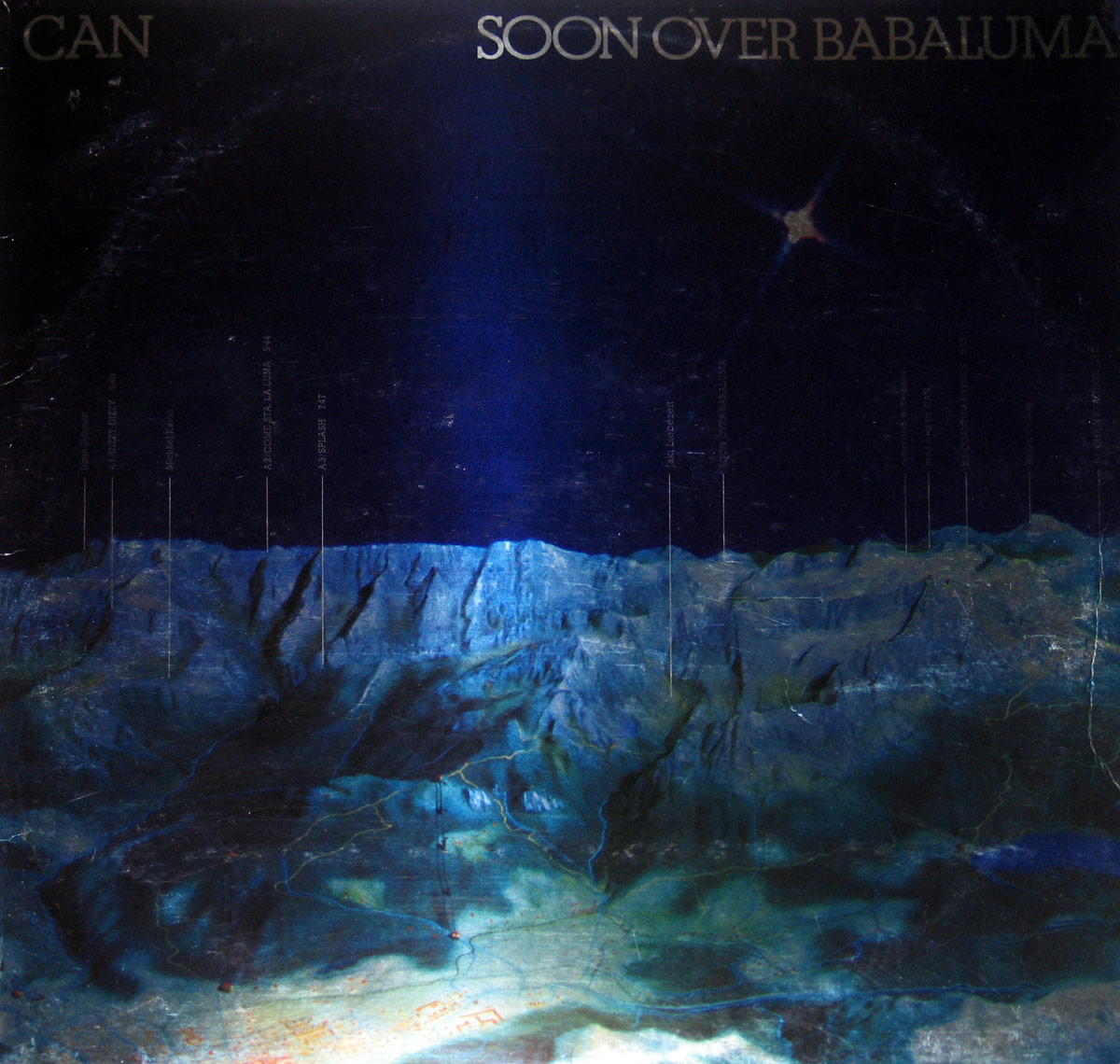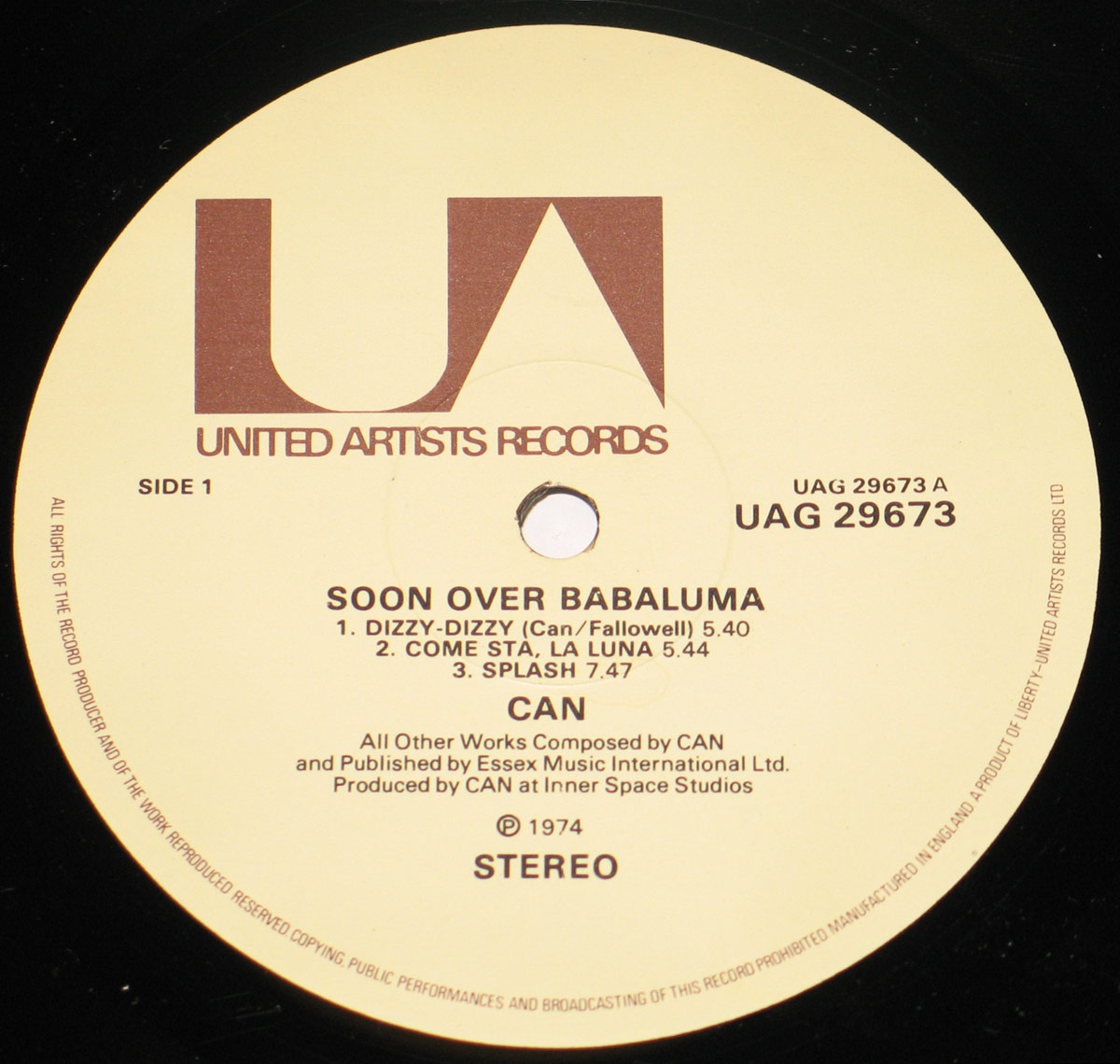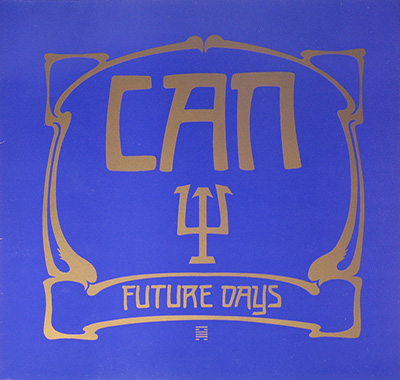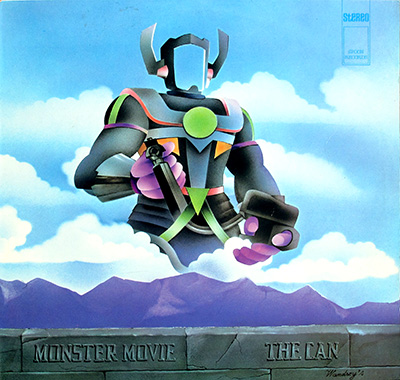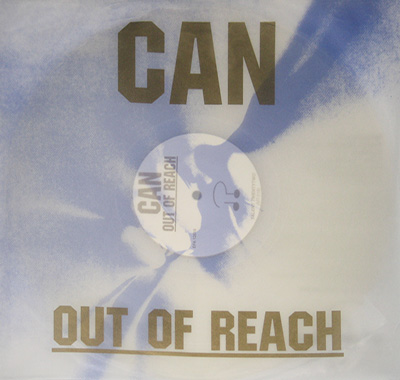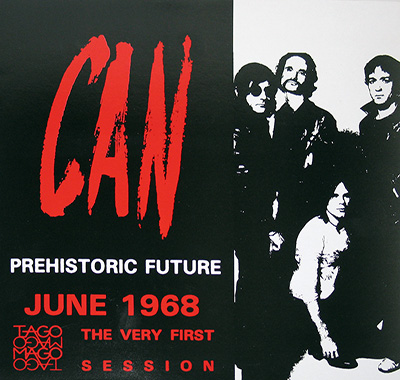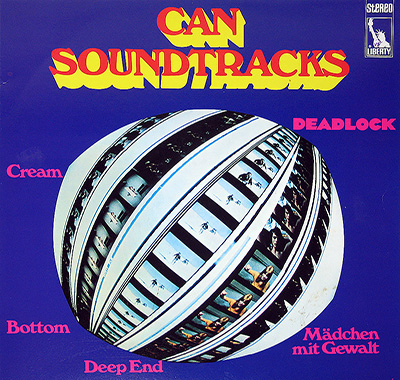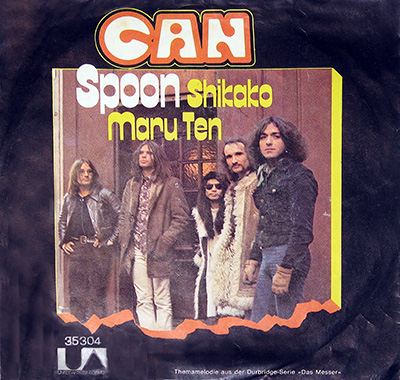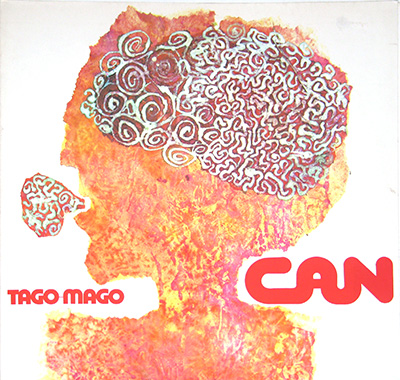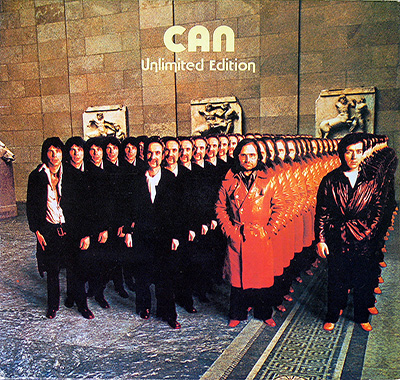"Soon Over Babaluma" Album Description:
In the world of music history, certain albums stand as pivotal milestones that mark the conclusion of an era. CAN's "Soon Over Babaluma" is one such masterpiece, representing the culmination of the band's experimental journey and the end of an era in the world of progressive rock. Released in 1974 in England, this 12" vinyl LP album not only showcases the avant-garde brilliance of CAN but also signifies a significant shift in recording techniques.
The Time Period:
The year 1974 is a crucial juncture in the music landscape, marked by a diverse range of genres vying for dominance. In the realm of progressive rock, CAN had already established themselves as pioneers, pushing the boundaries of sonic exploration. Against the backdrop of a changing musical landscape, "Soon Over Babaluma" emerged as a testament to the band's willingness to defy convention and embrace innovation.
Production Innovation:
A distinctive aspect of "Soon Over Babaluma" lies in its unconventional production. Unlike previous albums that employed multi-tracking machines, this LP was recorded straight onto stereo. This departure from traditional recording methods added a raw and unfiltered quality to the music, capturing the essence of CAN's experimental ethos. The decision to eschew multi-tracking machines highlighted the band's commitment to authenticity and a desire to push the limits of studio production.
Inner Space Studios:
The album was produced by CAN at Inner Space Studios, a creative haven where the band could fully realize their sonic ambitions. Inner Space Studios became synonymous with the experimental spirit of CAN, providing a conducive environment for the band members – Michael Karoli, Irmin Schmidt, Jaki Liebezeit, and Holger Ozukay – to collaborate and innovate. The studio's role in shaping the sound of "Soon Over Babaluma" cannot be understated, as it allowed CAN to craft a musical journey that transcended the conventional norms of the time.
The Band Members:
The creative synergy among the band members played a pivotal role in shaping the sonic landscape of "Soon Over Babaluma." Michael Karoli's inventive guitar work, Irmin Schmidt's avant-garde keyboard compositions, Jaki Liebezeit's mesmerizing drum patterns, and Holger Ozukay's basslines converged to create a musical tapestry that remains unparalleled in its complexity and originality. Each member brought their unique perspective, contributing to the album's rich and diverse sonic palette.
